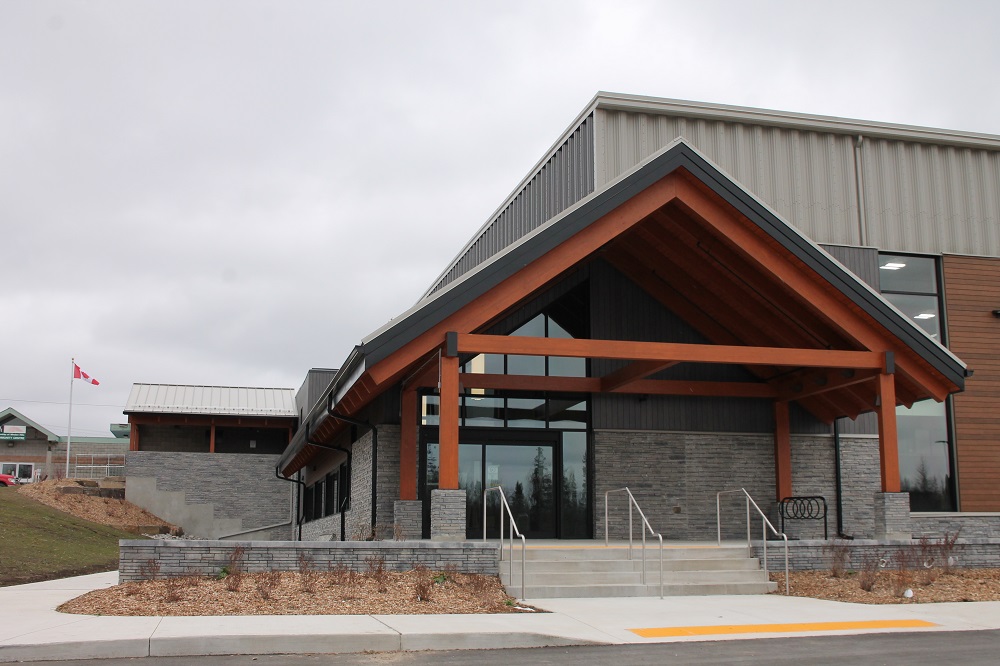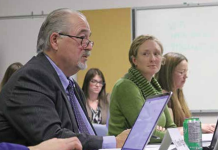Minden Hills voters largely opted for the status quo when they took to the polls in the fall of 2018.
While maintaining the core of council (Mayor Brent Devolin, Deputy Mayor Lisa Schell, Councillor-at-large Ron Nesbitt, and Councillors Jean Neville and Pam Sayne), the addition of newcomers Bob Carter and Jennifer Hughey has brought a new look.
Carter’s attention to detail, particularly around the arena renewal project, has been appreciated by both the media and ratepayers. While less vocal at meetings, Hughey has stuck to her election promise of ensuring transparency at the council table.
For Sayne, who was often on the losing end of 6-1 votes during the 2014-2018 term, she has gained some like-minded allies on certain issues, with Carter and Hughey sometimes agreeing with her.
Without a doubt, the biggest project as of the mid-way mark of this council is the arena and community centre refurbishment. Devolin, Schell, Nesbitt and Neville have never wavered in their belief in it, despite challenges that have included a global pandemic. The Minden “ice palace” will be their legacy.
It has also been the most controversial project in the term, splitting those who vehemently wanted a swimming pool against the arena crowd. It has also ushered in using a large loan to finance it.
Ratepayers who believe in this investment, including for a walking track and gym, would cite it as a major accomplishment. Detractors would say with no swimming pool, it’s merely saddled ratepayers with a 25-year, $12.7 million, debt.
Some of the other achievements would have to include finally hiring key members of senior staff, including CAO Trisha McKibbin, fire chief, Nelson Johnson, and director of community services, Craig Belfry.
Recruitment and retention continue to be a challenge for this township. It started with the departure of former environmental operations manager, Ivan Ingram. Former director of community services, Mark Coleman, left during the arena project and most recently, economic development destination and marketing officer, Emily Stonehouse, moved on. Other departments have had a hard time finding and keeping staff.
Without a doubt, the number one challenge and failure to date has been the Scotch Line landfill. Despite promises of cleaning up leachate seeps, bringing landfill attendants in-house, changing the footprint, bringing in weigh scales and other recommended measures, what improvements have been made are largely Band-aids. With respect to staff managing the site, they have inherited major problems from predecessors and councils that have been unwilling – or unable – to make major changes.
At times, the township has also been slow in implementing new programs. It’s the last lower-tier municipality to tackle septic inspections, for example. Some might argue this is prudent, learning from others first. Others might say it’s due to inefficiency or a lack of staff.
Some other pluses include: getting their house in order, with things such as an updated Official Plan and bylaws; a very cautious and safe approach to handling the pandemic; pushing forward on the flood portfolio; getting some major bridge and roadworks done, including the Sunnybrook bridge and IGA road; and ensuring more social housing and better daycare.
Some of the other cons are that the road network needs much more work, particularly major arteries such as Bobcaygeon and Blairhampton roads.
Heading into budget talks [which started Nov. 16], the council and staff have to establish a clear set of projects and priorities for the next two years. They can perhaps begin to do that now that the County





